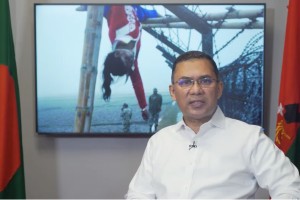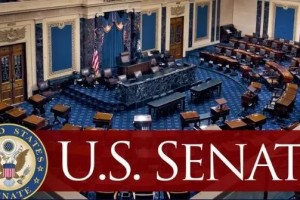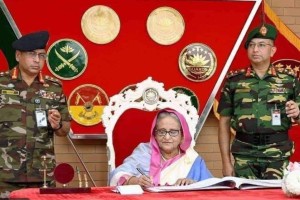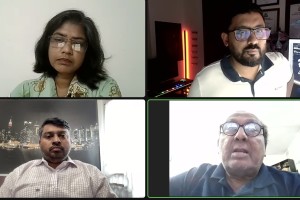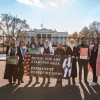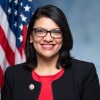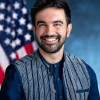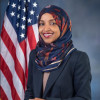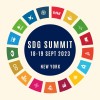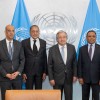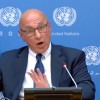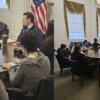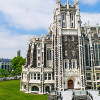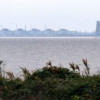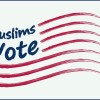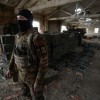Fatal Clashes in Bangladesh Claim Lives of Police and Protester, Igniting Tensions Amidst Looming Elections

A member of the police and an opposition political leader were killed while over a hundred, including opposition activists, law enforcers, and journalists, were injured in hours-long clashes during anti-government grand rallies in Bangladesh's capital Dhaka Saturday evening, flaring the prevailing political tensions in the country ahead of the national elections scheduled to be held in January 2024. The diseased policeman has been identified as Amirul Parvez, a constable of Dhaka Metropolitan Police's Counter Terrorism and Transnational Crime (CTTC) unit. On the other hand, the opposition leader killed during Saturday's violence has been identified as Shamim Mia, a leader of the main opposition political party, Bangladesh Nationalist Party's (BNP) associate organization, Jubo Dal, in the capital Dhaka's Mugda area. The clashes first occurred in Dhaka's Kakrail area and rapidly spread to other parts of the mega city of nearly 20 million people. Police fired tear gas shells and rubber bullets targeting the opposition protesters. In retaliation, the opposition political activists threw stones and brickbats at the law enforcers and set many vehicles on the streets, including motorbikes, on fire.

The opposition parties, including the BNP and its main political ally and Bangladesh's leading Islamic political party, Bangladesh Jamaat-e Islami, staged anti-government grand rallies at separate venues in Dhaka, demanding fair elections and protesting price hikes of daily commodities and human rights violations. The opposition parties claimed that under the administration of incumbent Prime Minister Sheikh Hasina, a free, fair, and participatory national election cannot be held. Referring to the instances of the previous elections held in 2018 and 2014, the opposition party leaders accused the Sheik Hasina administration of rigging votes and illegal intimidation, including ballot stuffing in the previous night. They said that the country's people do not expect any elections with ballot stuffing the previous night, and efforts to hold any such elections in the future will be averted at any cost. They called on Sheikh Hasina to resign immediately and hand over power to a nonpartisan caretaker government to hold the next national elections fairly.

Blame game
The ruling Awami League party and the opposition parties are now trying to get political benefits from Saturday's violence and killings. After Saturday's political clashes, police arrested more than 100 opposition leaders and activists from different parts of the country in the next 24 hours, including BNP's Secretary General, Mirza Fakhrul Islam Alamgir. The police also sealed the headquarters of BNP in central Dhaka's Naya Paltan area since Sunday morning and have been conducting drives to arrest more opposition party activists. On the other hand, the main opposition BNP is accusing police of foiling their peaceful rally and harassing workers on the way to the rally ground. They called on the police to work to maintain law and order and not fulfill the political agenda of the ruling party. It is predicted that in the coming days, in case of any violence like torching vehicles or other damages, the opposition parties and the government will blame each other ahead of the national elections. A video clip was viral on social media on Sunday (October 29), showing that a bus owner was crying and accusing police of torching his vehicle during the nationwide strike called by the opposition parties.

International pressures for a fair election
To solve the prevailing political crises in Bangladesh, international communities, including the United States and the European Union, are putting pressure on the government to ensure fair and participatory national elections next year. In July this year, 14 United States Congress members called for a free and fair election in Bangladesh under the supervision of the United Nations. Expressing concern over political violence against the opposition parties in Bangladesh, the congressmen also asked the UN to act immediately to suspend Bangladesh's membership at the world's biggest platform. On July 27, Virginia's Republican congressman Bob Good in a tweet regarding a letter to the US ambassador to the United Nations, Linda Thomas-Greenfield, by the US above politicians, said: "The people of Bangladesh deserve free and fair elections. I sent a letter to the US ambassador to the UN with 13 of my colleagues expressing concern over violence by the Bangladeshi government against peaceful demonstrators."
Peaceful election, lone solution
For the last couple of years, it has been a common scene that in every political program of the main opposition BNP and Jamaat-e Islami, hundreds of thousands of people gather who are very aggrieved due to the price hike of daily commodities and human rights violations. Even people from remote parts of the country join the anti-government programs in the capital, Dhaka, very spontaneously at their own cost. But, seemingly due to the weak leadership of the BNP, the anti-government movement could not gain any expected result. Moreover, the government has been playing political games very tactfully with the opposition parties, keeping them separate from each other. Especially despite supporters' huge pressure for a unified movement, BNP and Jamaat leaders have failed to conduct a joint movement from a single platform to meet their demands. In this circumstance, the political environment in Bangladesh must be more conflicting and volatile. The only solution to it is holding a fair and participatory election. But that seems to be far away due to the rigid stance of the government and the opposition parties against each other.














